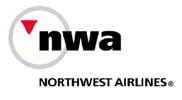
BP reported Sunday that it has had to shut down half of its Alaska North Slope production because of what the company termed, “severe corrosion” in its main Prudhoe Bay oil pipeline.
Can’t argue with that decision. I’d much rather them fix the problem than have a horrible oil spill in that beautiful part of the world.
However, this shutdown to see just how bad the “corrosion” problem is does not come without an immediate side-effect — a healthy uptick in the price of crude oil. Not only could BP not give a timetable as to how long it would take to completely shut down the pipeline Monday morning, it could not give an estimate as to how long the pipeline could be out of service, as repairs are made. The severity of the problem has not yet been determined.
As of 1 p.m. Monday, crude futures were trading at about $76.65, almost $2 above where they closed on Friday.
Oh joy.
Not a surprise, given that the shutdown will cut U.S. oil production by some 400,000 barrels a day, or about 8% of total U.S. oil production.
Reading comments that BP issued Monday morning, it doesn’t sound like this is going to be a “quick-fix” deal. In fact, the company already has another pipeline down — the result of an oil spill in March. That spill revealed corrosion, resulting in the company having to put in a bypass on that line.
As we noted in last week’s PBB, the problem the last few weeks for the things with wings — and those who have to pay the fuel bills for them — has not been so much the price of crude as it has been an increase in the crack spread — a situation that results in the price of jet fuel rising higher in proportion to the increase in the price of crude.





